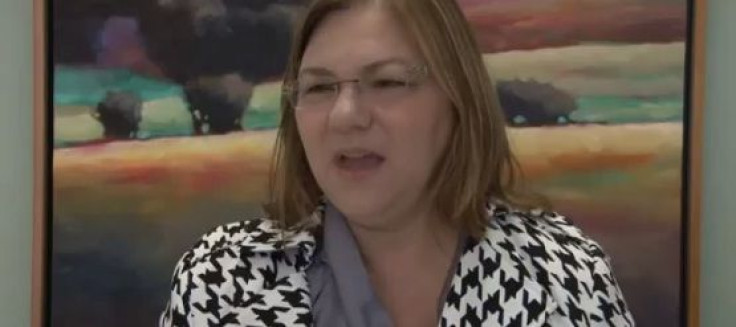Inflammatory Breast Cancer: Rare, But Lethal and Underfunded

Meet Terry Arnold. In 2007, at 49 years old, her right breast became red, hot, and swelled from a C cup to a D. Shuffled around from specialist to specialist, Arnold was given various diagnoses by well-meaning but confused doctors. One doctor said that she had an infection in her pituitary gland and gave her a round of antibiotics; another suggested that she was going through menopause in her right breast. After four months, she received the proper diagnosis: inflammatory breast cancer. Like many women, she did not know what it was, and it was seen as a death sentence. The first doctor said that she would live mere 18 months; when she went to M.C. Anderson Cancer Center, the doctors revised the prognosis to a relatively long three years.
Thanks to the efforts of many non-profit organizations and researchers, breast cancer awareness is at an all-time high. The disease, which affects as many as 1 in 8 women, is no longer the death sentence that it once was: if it is caught in its earliest stages, sufferers of the disease can have as high as a 93 percent survival rate. But, while researchers are increasingly optimistic about wiping out breast cancer, one form of the disease - inflammatory breast cancer - remains an "orphan illness", with grim survival rates, few researchers, and little funding to inch closer to a cure.
The cancer is rare; only 4 percent of people with breast cancer have it. But it is lethal, accounting for 10 percent of breast cancer deaths a year. Because the cancer is not normally spotted through traditional methods, like mammograms, and is often unfamiliar to many people's primary care physicians, it has often metastasized to various organs by the time that it is caught: 35 to 40 percent of cases have metastasized to other organs (Arnold also had cancer in 13 lymph nodes in her neck when her breast cancer was caught), and 20 to 25 percent of cases have metastasized to the brain. The disease also moves alarmingly quickly. Sufferers of the disease generally live an average of three years, and currently, the overwhelming majority of disease sufferers die.
Arnold also discovered a more common form of breast cancer in her left breast. She underwent a mastectomy and has not had reconstruction, because many inflammatory breast cancers often come back. Doctors advise against implants because they could hide early signs of the cancer's return.
Arnold is now an outspoken advocate, trying to network surviving IBC patients and raise funding and awareness. Inspired by NASA astrophysicist Susan Niebur, who succumbed to the disease, Arnold founded the IBC Network Foundation. A "Hunt for Hope" scavenger hunt hosted by the group raised $32,000 that they have donated to the M.C. Anderson Cancer Center. It may not seem like a lot, considering that cancer trials can cost millions of dollars, but the thousands of dollars raised by the foundation may go a long way. The disease has attracted little attention from pharmaceutical companies. Researchers know little about the genetic causes of the disease, while most funding currently prefers research that has a genetic target in mind. Research attempting to find a genetic target is often rejected for grants as well.
Research for breast cancer is more promising today than it was five years ago though. The drug crizotinib, or Xalkori on the market, has been approved for late-stage lung cancer with a mutation in the gene ALK, a mutation that has appeared in IBC patients. Other scientists are testing several drugs that target genetic mutations in IBC.
According to the National Cancer Institute, symptoms of IBC include "swelling (edema) and redness (erythema) that affect a third or more of the breast. The skin of the breast may also appear pink, reddish purple, or bruised. In addition, the skin may have ridges or appear pitted, like the skin of an orange...These symptoms...[occur] because cancer cells have blocked lymph vessels in the skin, preventing the normal flow of lymph through the tissue. Sometimes, the breast may contain a solid tumor that can be felt during a physical exam, but, more often, a tumor cannot be felt." Sufferers of IBC also can face a sudden increase in breast size; heavy, burning, or tender breasts; inverted nipples; and swollen lymph nodes under the arm or on one side of the neck.
The disease often affects women who are younger than the average age of other breast cancer patients. African Americans are at particular risk, as well as obese and overweight women, worrying doctors as more and more Americans are categorized as overweight or obese.
Arnold has lived five years after her diagnosis, an astronomical success for the sufferer of the illness. But, at a time when many people with cancer can consider themselves cured if they have not relapsed for five years, Arnold does not consider herself a survivor. Instead, she says that she is "surviving". Arnold will continue to be tested for the disease for the rest of her life.



























